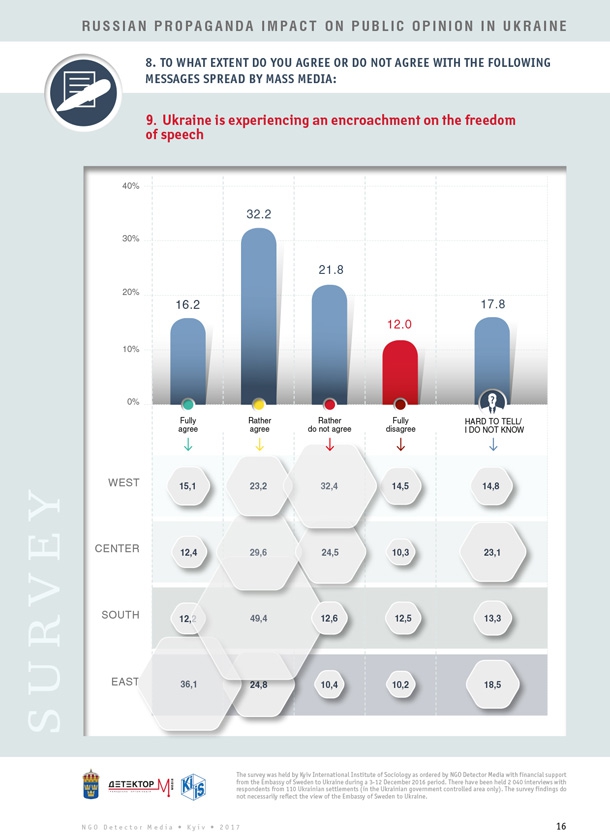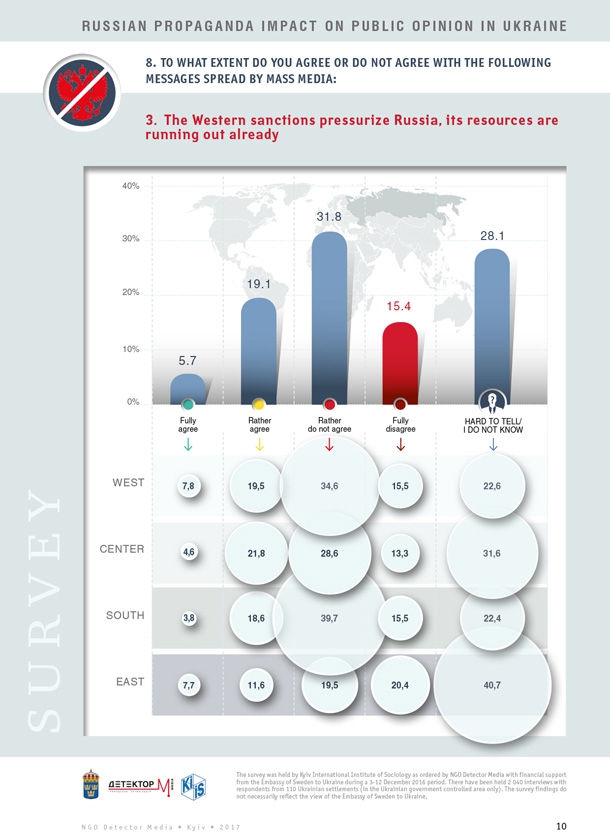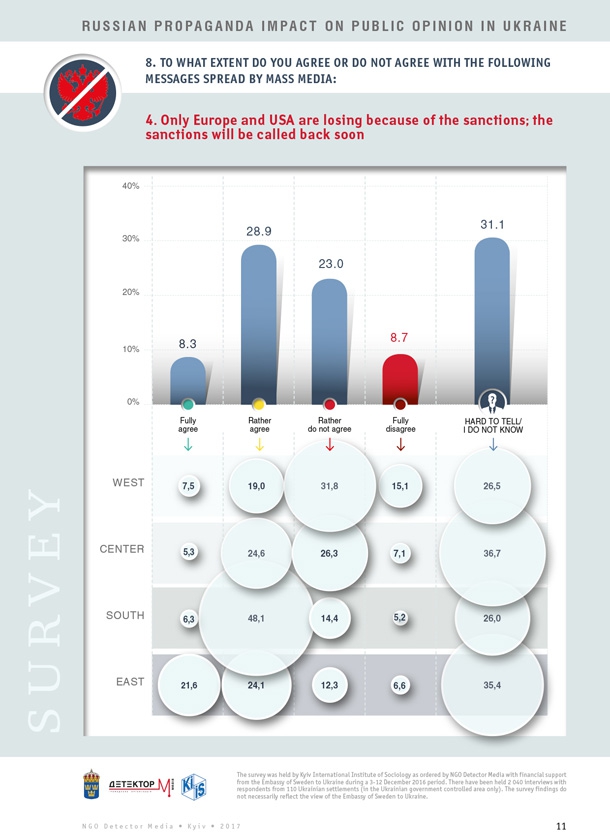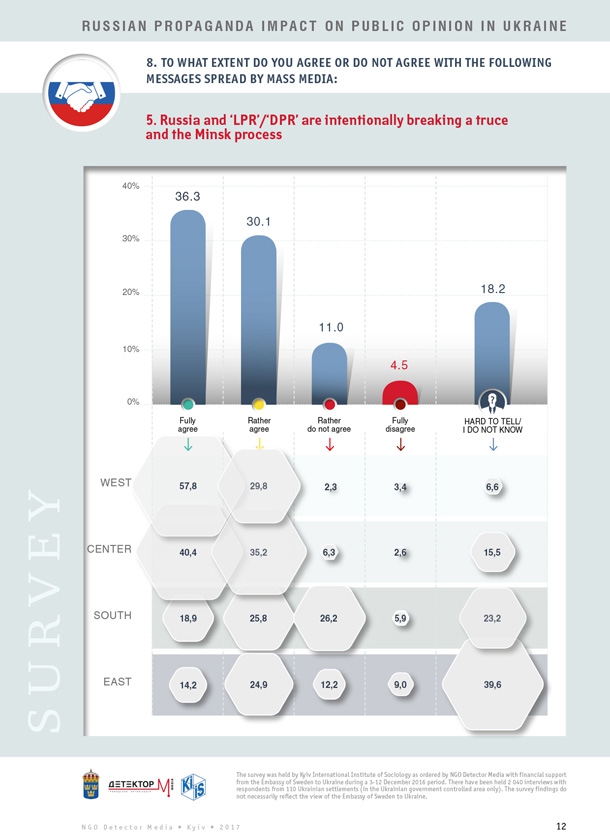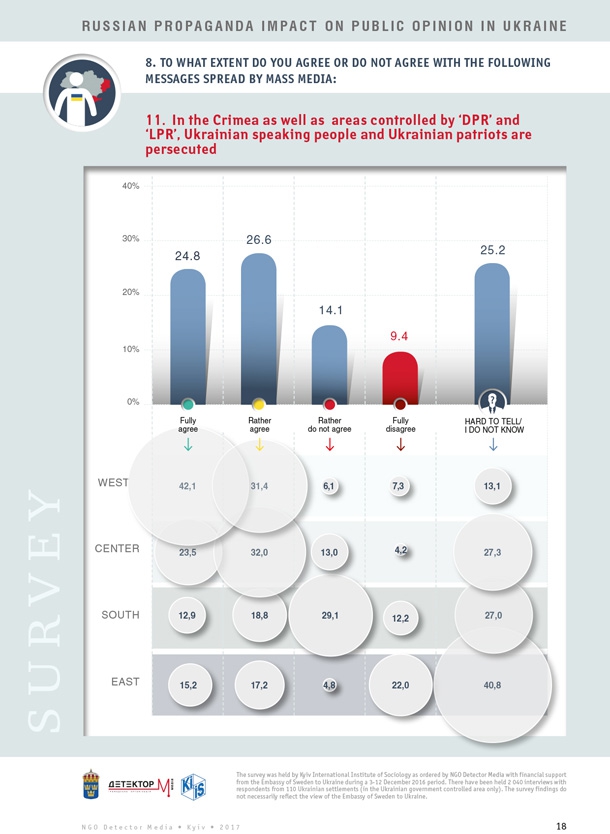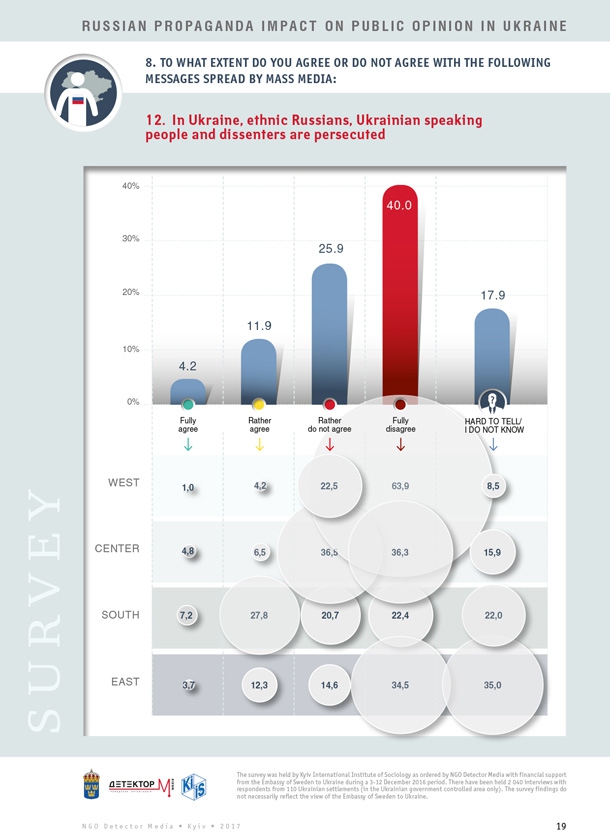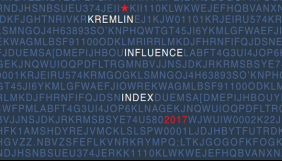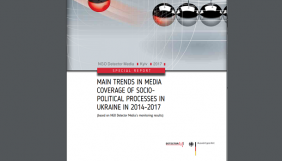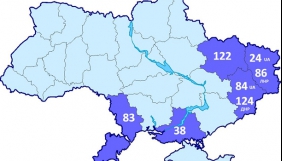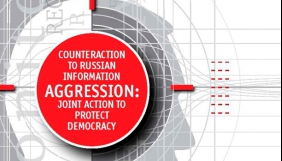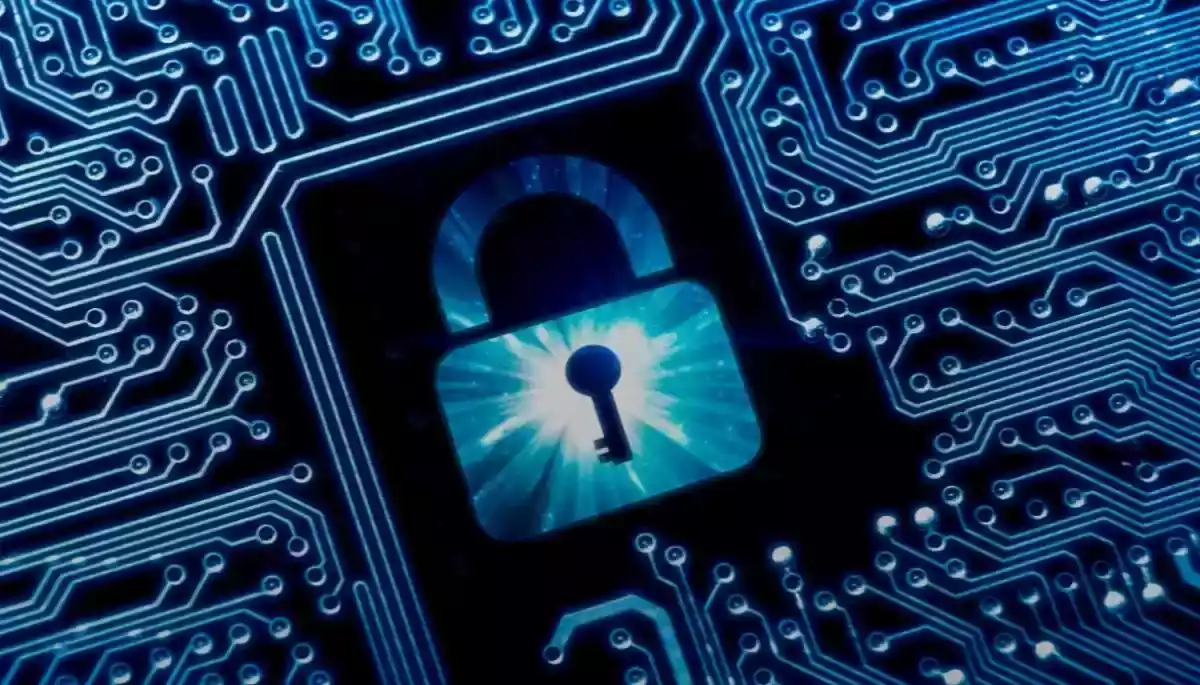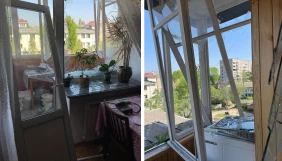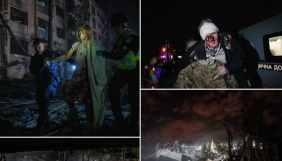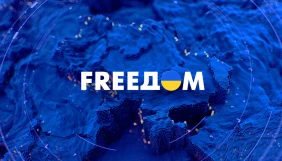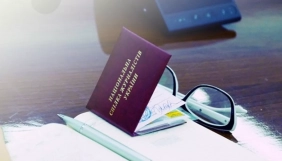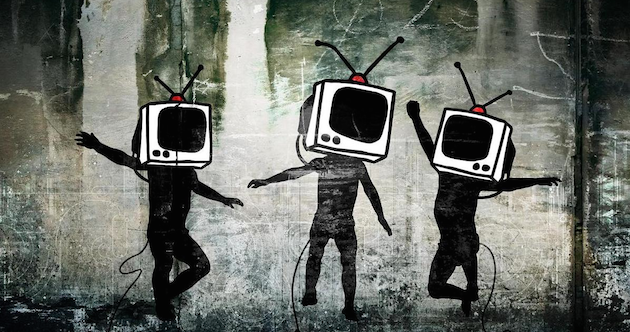
Survey of Russian Propaganda Influence on Public Opinion in Ukraine Findings
Виділіть її та натисніть Ctrl + Enter —
ми виправимo
Survey of Russian Propaganda Influence on Public Opinion in Ukraine Findings
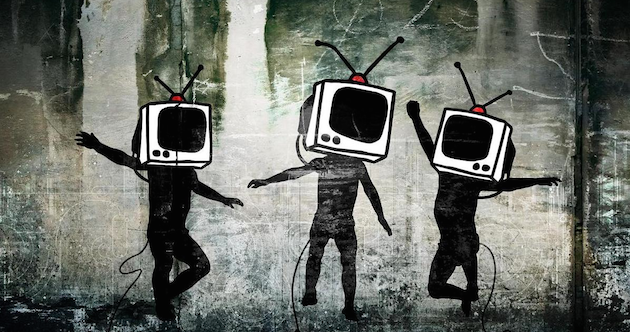

The research during a 3-12 December 2016 period was held by Kyiv International Institute of Sociology as ordered by NGO Detector Media with financial support from the Embassy of Sweden to Ukraine. There have been held 2 040 interviews with respondents from 110 Ukrainian settlements (in the Ukrainian government controlled area only).
Survey findings:
1. Ukrainian TV is a major information source about the situation in the country for Ukrainians
Ukrainians keep being informed about the situation in the country from Ukrainian national channels mainly: 87.1% of respondents prefer TV. And 40.7% of respondents get information from the on-line media. National news-papers and radio are fare behind: 17% and 16.5 % respectively. And 7.9% Ukrainian citizens consume information from Russian TV-channels. At the same time, almost half of respondents (47.7%) learn about developments in Ukraine from unofficial sources: relatives, friends, neighbors, colleagues.
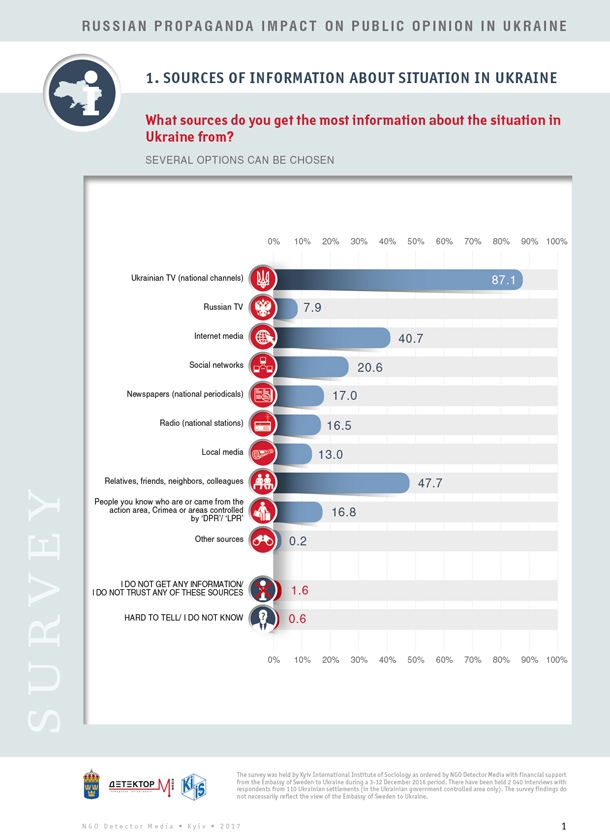
2. As an information source about the Donbas conflict, the Ukrainian TV is trusted the most, and the trust to Russian TV-channels is almost zero
40.4%of surveyed Ukrainians trust Ukrainian national TV-channels as an information source about the military conflict in Donbas. The trust of East residents to central channels is much lower being 22.2%.The second trusted source, with large margin, is relatives, friends, neighbors, colleagues(18.8%), being13.4%in the East. The third place is taken by on-line media17.5% (with 14.2% in the East). Other media have low trust: radio 5.3% (0.5%in the East), newspapers 3.8% (1.4%in the East), social networks7.1% (1.9%in the East).
Only 1.3%of respondents all over Ukraine (0.8%in the East) trust Russian TV-channels as an information source about the military conflict in Donbas.
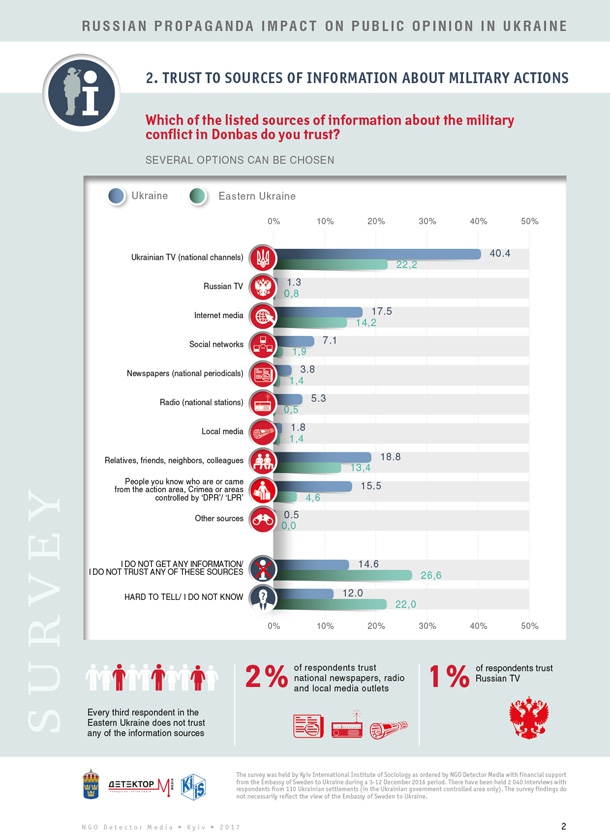
Main channels referred to as an information source about the military conflict in Donbas or about the Crimea are: 1+1 – 43.1%, Inter – 34%, Ukraina– 20.1%, STB –15.7%,ICTV – 15.3%.Russian TV-channels lag far behind: Russia – 1.7%, Channel One – 1.1%, NTV – 0.9%, Dozhd– 0.2%.
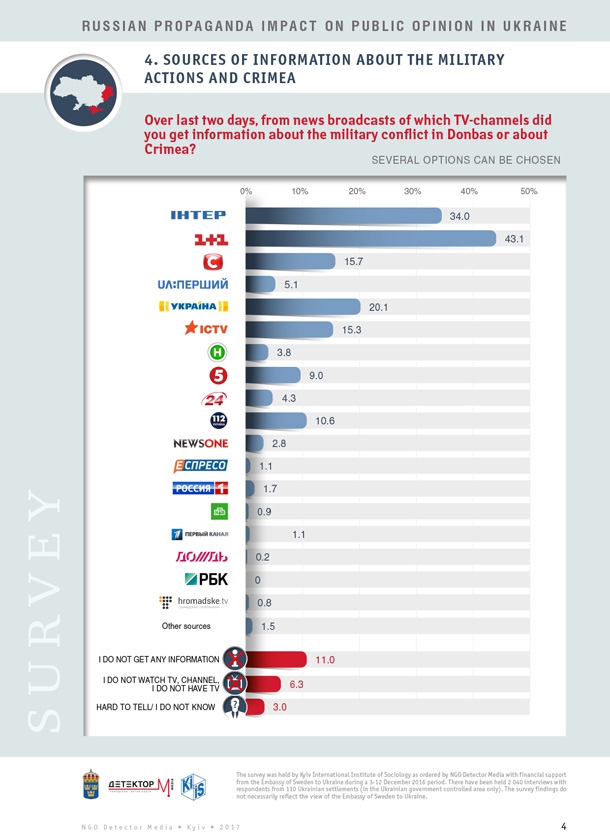
3. A bit more than ten present of respondents can watch Russian TV-channels at home
Despite the introduced limitations, Ukrainian citizens can watch Russian TV-channels at home. The respondents answered to a question “What channels can you pick up at home (regardless of transmission mode)?” as follows: 11.6% said they could watch Russia TV-channel, 12.2% - NTV, 13.2% - Channel One, 6.2% - Dozhd.
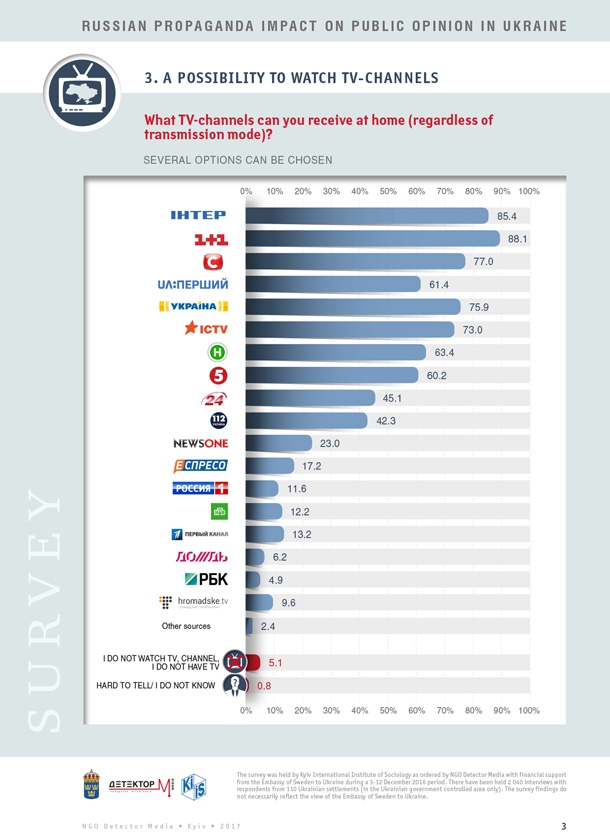
The majority – 78.7% - watch Russian TV-channels via satellite dish, 7.8% via Internet, 6.4% via cable TV, 5.8% via analog antenna (the latter being 37.4% in the East).
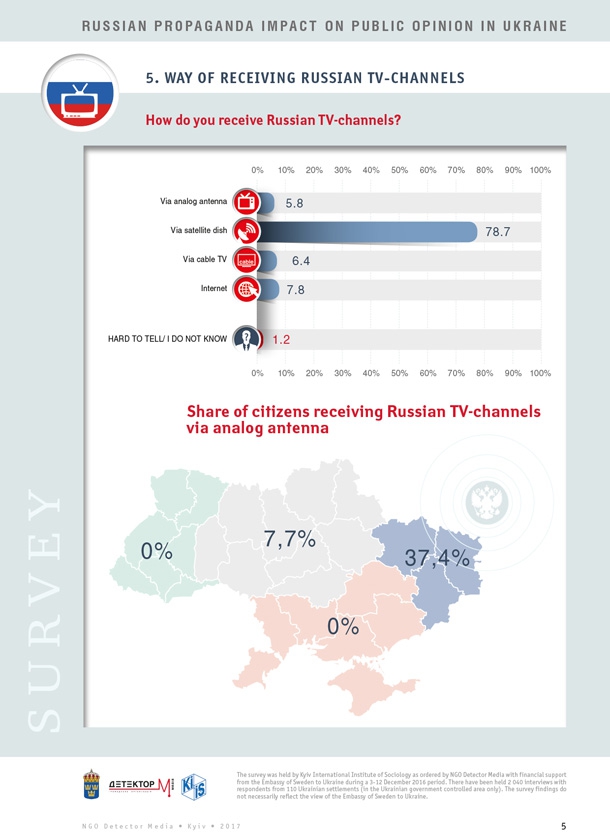
4. Ukrainians do not have enough information about the death toll of Ukrainian servicemen and Donbas noncombat population.
Answering a question “What kind of information is not covered by mass media in full, in your opinion?”, 39.6% respondents say that is the information about the casualties of Ukrainian servicemen, 35.6% about the peaceful population death toll, 23.9% believe there is not enough information about actions of local authorities, 18.2% about the State’s plans to restore the near-front areas, economic and social development of these areas, 16.2% about reforms in the country.
Meanwhile, 18.9% of respondents believe that the information is sufficient but it is not true.
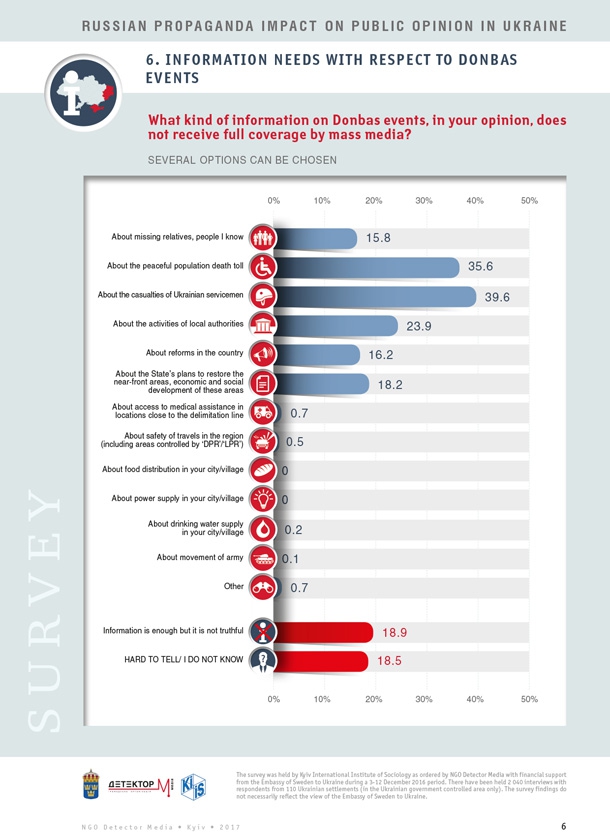
5. Ukrainians do not get enough information about the national strategy with respect to occupied and not controlled areas.
41.7% of respondents believe that they do not get enough information about the national strategy and goals as about the Crimea. And 44.9%believe that they do not get enough information about the national strategy and goals with respect to the Eastern areas not controlled by Ukraine today.
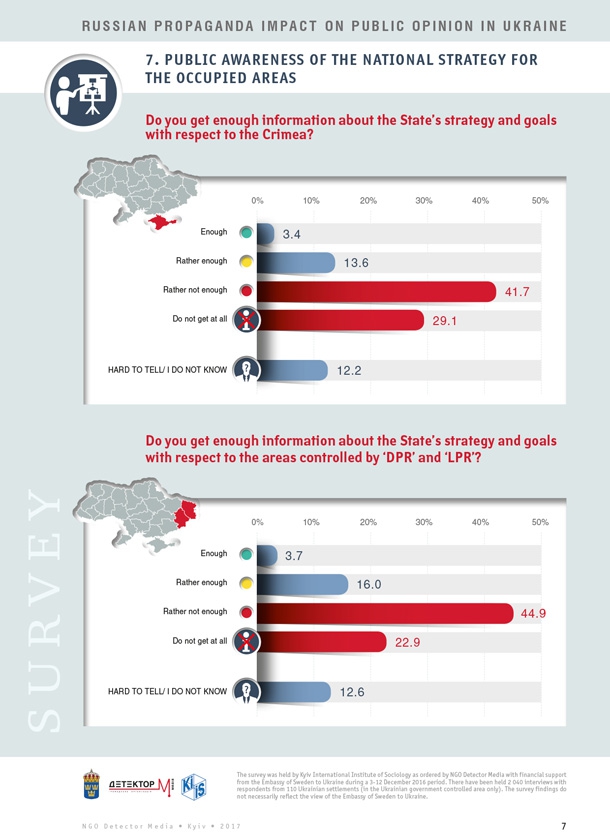
6. There is still a significant share of Ukrainians believing 2014 events to be a military coup d’état
34.3% of respondents all over Ukraine agree with a statement that an illegal military takeover took place in Kyiv in winter 2014. The highest rate of agreement with this statement was recorded in the South (51.1%) and East (57.3%) of Ukraine.

56.4% of respondents believe that the 2014 events are people’s revolution. This opinion prevails in the West (80.5%) and Center (60.8%) of the country. 28.8%of respondents from the East and 38.5% from the South support this opinion.
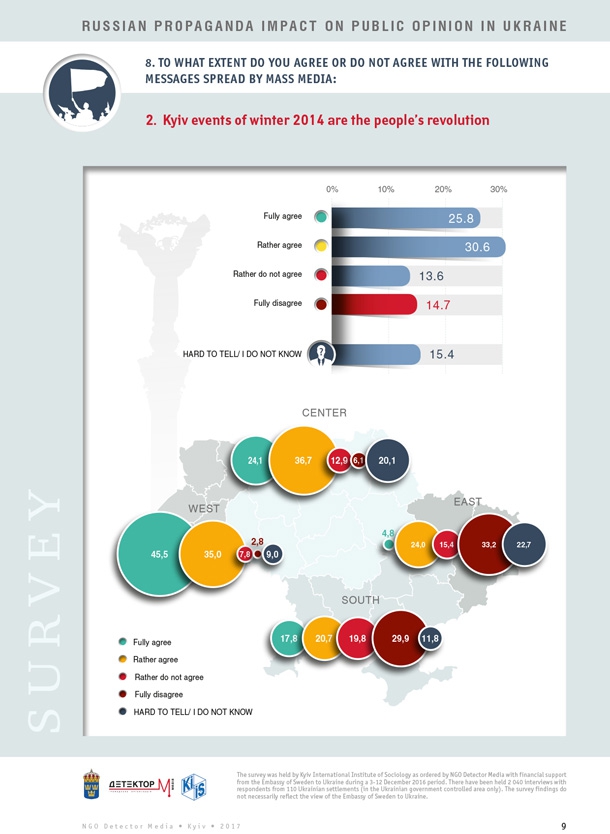
7. The majority of Ukrainians believe that Russia is responsible for breaking a truce and the Minsk process, not Ukraine.
66.4%of respondents agreed with a statement “Russia and LPR/DPR intentionally break a truce and Minsk process”, while 38.8% support a statement “Kyiv government intentionally breaks a truce and Minsk process”.
8. The percentage of those who believe that the Ukrainian government and oligarchs are responsible for the war continuation is almost the same as of those believing that Russia is responsible for that.
65.5% of respondents agreed with a statement “the war goes on because it is profitable for the Ukrainian government and oligarchs . 70.7%agreed with a statement “the war goes on because Russia does not withdraw troops from Donbas and does not stop supporting ‘DPR/LPR’.”
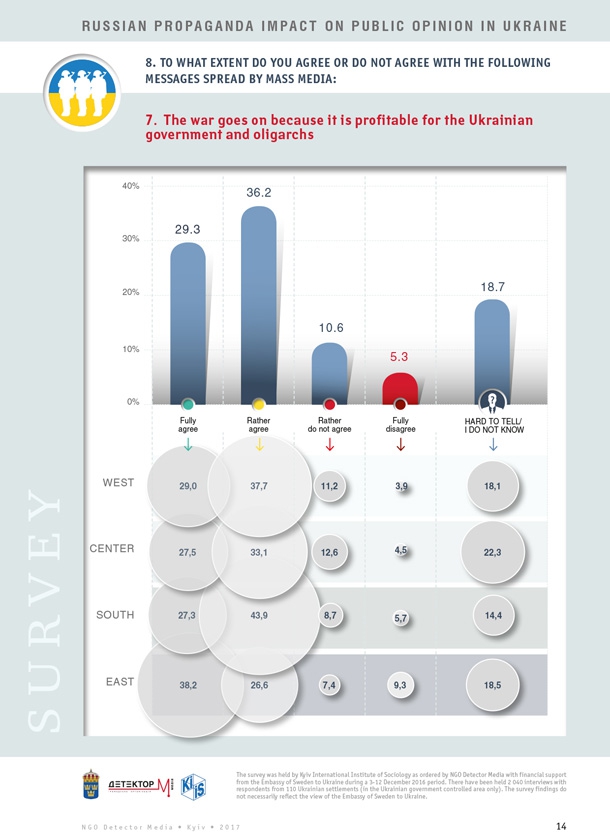
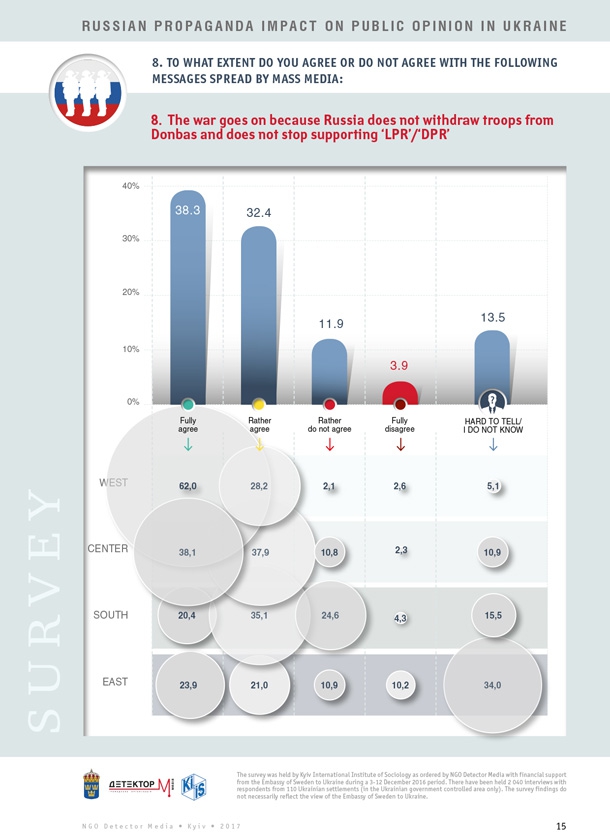
9. The research has shown ambivalent evaluations of different events by the same Ukrainians.
9% of respondents believe in parallel that military coup d’état and people’s revolution took place in 2014.
22.3% of respondents believe in parallel that Moscow as well as Kyiv are responsible for the Minsk process fail.
44.8%of respondents believe in parallel that the war goes on because of the interest of the Ukrainian government and oligarchs and because Russia does not withdraw troops from Donbas and does not stop supporting ‘DPR/LPR’.
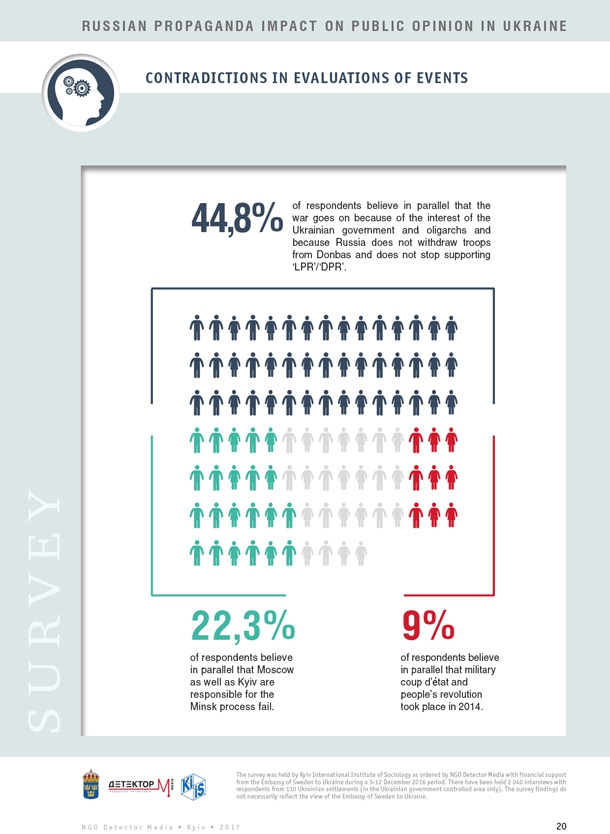
10. The majority of respondents believe that there is an encroachment on the freedom of speech in Ukraine ongoing.
48.4% of respondents are convinced that there is an encroachment on the freedom of speech in Ukraine ongoing. Such a feeling dominates in the South – 61.6% of respondents and in the East – 60.9% of respondents.
33.8% do not agree with this statement. And 17.8% have nothing to say about that.
